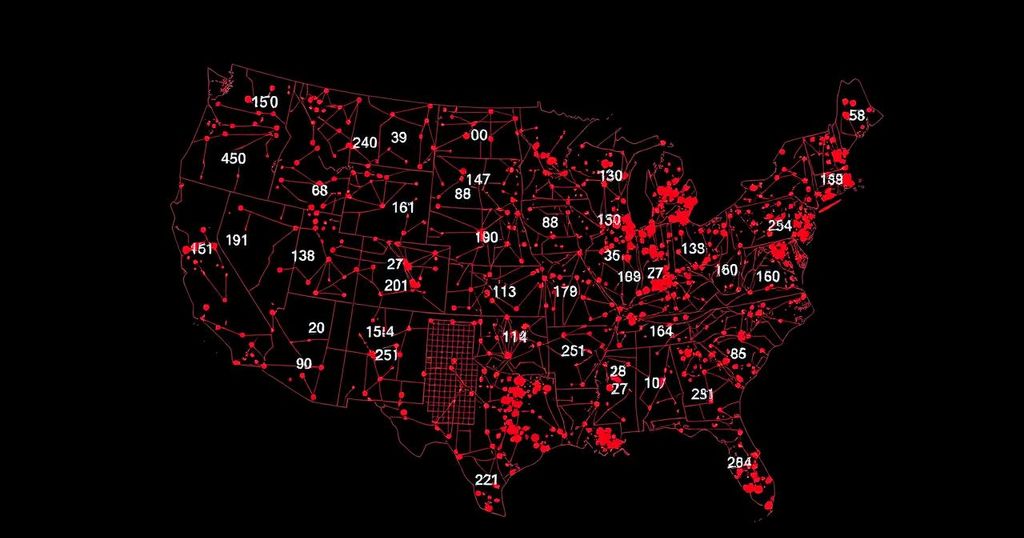Escalating Foreign Threats to U.S. Elections Prompt Heightened Security Measures
Foreign interference in the U.S. elections is escalating, particularly by Russia, which is using disinformation tactics to undermine confidence in the electoral process. Iran has engaged in cyber operations against Republican campaign associates, while China maintains sophisticated hacking strategies. Officials are responding more aggressively to these threats to ensure election security and public trust.
Foreign interference in the upcoming U.S. presidential election is intensifying, with escalating efforts from Russia, China, and Iran aimed at manipulating voter perceptions and confidence. Recent incidents have underscored this threat, such as the hacking of a presidential candidate’s phone and the spread of disinformation, including a doctored video depicting ballot destruction in Pennsylvania. National security officials highlight a correlation between these tactics and historical patterns, indicating a consistent strategy by adversarial nations to exploit divisions within American society. Russia has emerged as the foremost threat, utilizing state-controlled media and misleading campaigns to undermine electoral integrity, particularly targeting Vice President Kamala Harris’ campaign through disinformation. Intelligence assessments suggest that Russia’s efforts may extend beyond Election Day, fomenting distrust in the electoral process to promote regulatory chaos and division within the U.S. Iran, on the other hand, has initiated aggressive cyber operations aimed at extracting compromising information from Trump campaign associates, with intentions to damage the Republican candidate’s prospects. U.S. officials remain vigilant regarding the potential for Iranian instigation of violence against political figures. Although China’s engagement appears more measured, it nonetheless conducts sophisticated hacking operations that could disrupt U.S. political dynamics. In response to these multifaceted threats, U.S. officials and technology companies have enhanced their defenses, striving to promptly expose foreign interference initiatives. Despite the heightened security surrounding the electoral process, there remains a pervasive sense of vulnerability to disinformation, as the lessons from prior electoral cycles influence current strategies to protect democratic integrity.
As foreign threats to U.S. elections have increased in the months leading to the 2024 presidential election, national security has become a pressing issue. The advancements in technology have facilitated cyberespionage and disinformation campaigns, with adversarial nations like Russia, Iran, and China attempting to influence political outcomes and sway public opinion. Security measures and countermeasures have become critical as officials, tech companies, and security analysts work to mitigate risks and bolster voter confidence against manipulation.
In summary, the current landscape reveals an alarming increase in foreign interference directed at the U.S. electoral process, particularly from Russia, China, and Iran. The coordinated efforts to engage in misinformation and cyber activities have prompted U.S. officials to adopt robust strategies to expose and counter these threats. While the U.S. election system is deemed secure, the ongoing challenges underscore the vulnerabilities that can be exploited by foreign adversaries. Continued vigilance and proactive measures will be essential to preserve the integrity of the upcoming election and bolster public trust in the electoral process.
Original Source: apnews.com




Post Comment